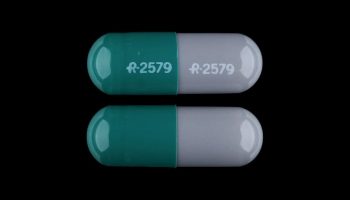Are you or someone you know grappling with the challenges of drug addiction?
Among the concerns surrounding seeking help for addiction, the cost of drug rehab often looms large. It’s a topic that sparks various misunderstandings and myths, leaving many individuals unsure of what to expect financially.
The misconception surrounding drug rehab costs leads people to believe that seeking help is financially unattainable, causing many to delay or avoid treatment altogether, with dire consequences on their health.
Here Are 5 Myths And Facts About Drug Rehab Cost

Let’s take a closer look at some of the common misconceptions surrounding private drug rehab costs and provide accurate information so that you can make informed decisions about your treatment journey.
Myth #1: Drug Rehab Is Always Unaffordable And Only For The Wealthy.
Fact: It is a common misconception that drug rehab is out of reach for those with limited financial means. While luxury rehab centers have high price tags, affordable options exist.
Government-funded programs such as NHS are available to help individuals access the necessary treatment without breaking the bank. By exploring these options, individuals can find quality rehab programs that fit within their budget and receive the support they need on their path to recovery.
Myth #2: Insurance doesn’t cover drug rehab.
Fact: Fortunately, many insurance plans in the UK offer coverage for drug addiction treatment. Insurance providers understand the importance of supporting individuals in their recovery journeys and provide mental health and substance abuse treatment coverage, including rehab.
However, it’s crucial to review your insurance policy and understand the specific coverage details and limitations. Coverage may vary between insurance providers and specific plans, so contacting your insurance company directly is advised. By exploring your insurance options, you can better understand the available coverage for drug rehab and make informed decisions about your treatment.
Myth #3: Outpatient rehab is always cheaper than inpatient rehab.
Fact: While outpatient rehab generally tends to be more cost-effective than inpatient rehab due to not requiring accommodation, the overall cost depends on several factors. Outpatient programs vary in intensity and duration, and specialized therapies or services may incur additional charges.
On the other hand, inpatient rehab includes 24/7 care, room and board, and a structured environment. With its comprehensive and immersive approach, inpatient rehab can provide individuals with a highly supportive environment where they can focus on their recovery. The decision between outpatient and inpatient rehab should consider individual needs, the severity of addiction, and the level of support required, while also factoring in the financial implications of each option.
Myth #4: The cost of drug rehab is the same for everyone.
Fact: Drug rehab costs are not one-size-fits-all. The expenses associated with rehab vary based on several factors. Treatment facilities and location play a role, as luxury centers may cost more than other rehabs. The type of program, such as detoxification or residential treatment, may also influence the drug rehab cost.
The length of stay and additional services, like specialized therapies or holistic treatments, can further impact the overall expenses. Additionally, individual financial situations and insurance coverage contribute to the final cost, making it a unique consideration for each person.
Related: Does Walmart Drug Test? – Must Read
Myth #5: Completing drug rehab guarantees a lifetime of sobriety, eliminating future costs.
Fact: Recovery from addiction is a lifelong journey, and long-term sobriety is not guaranteed upon completing a rehab program. While private drug rehab equips individuals with valuable tools and support, maintaining sobriety is necessary.
This may involve participating in aftercare programs, attending support groups, receiving counseling, or accessing other resources. Depending on the individual’s needs and circumstances, these additional services may incur costs. It’s crucial to recognize that sustaining recovery requires ongoing effort and investment, and individuals should be prepared for potential future costs associated with staying sober.
Ultimately, it’s crucial to remember that financial constraints should not be a barrier to accessing quality rehab services. Seeking help for drug addiction is not only a financial investment but also an investment in one’s health and future. Therefore, reaching out for support and exploring the available resources is important.
The cost of not getting the necessary treatment can be far greater, significantly impacting physical and mental well-being, relationships, and overall quality of life. No matter the financial aspect, prioritizing one’s health and seeking the appropriate help is always worth it.
Read Also:




























